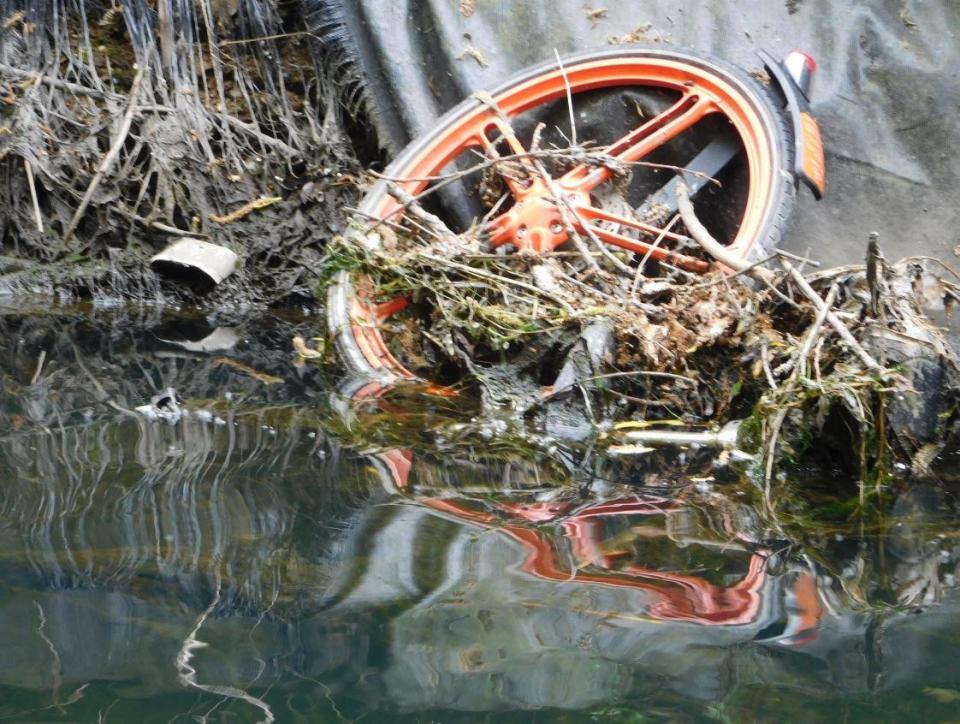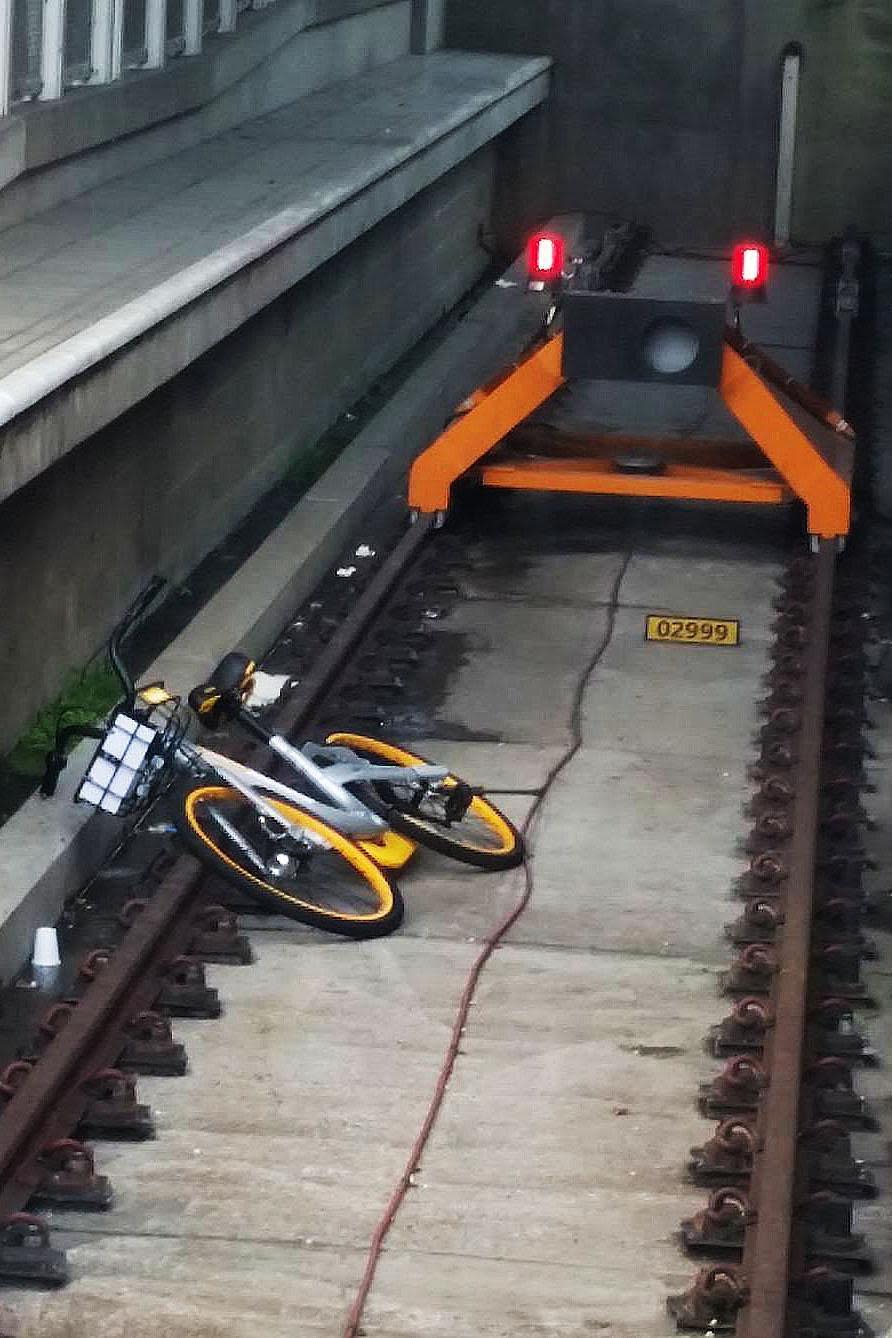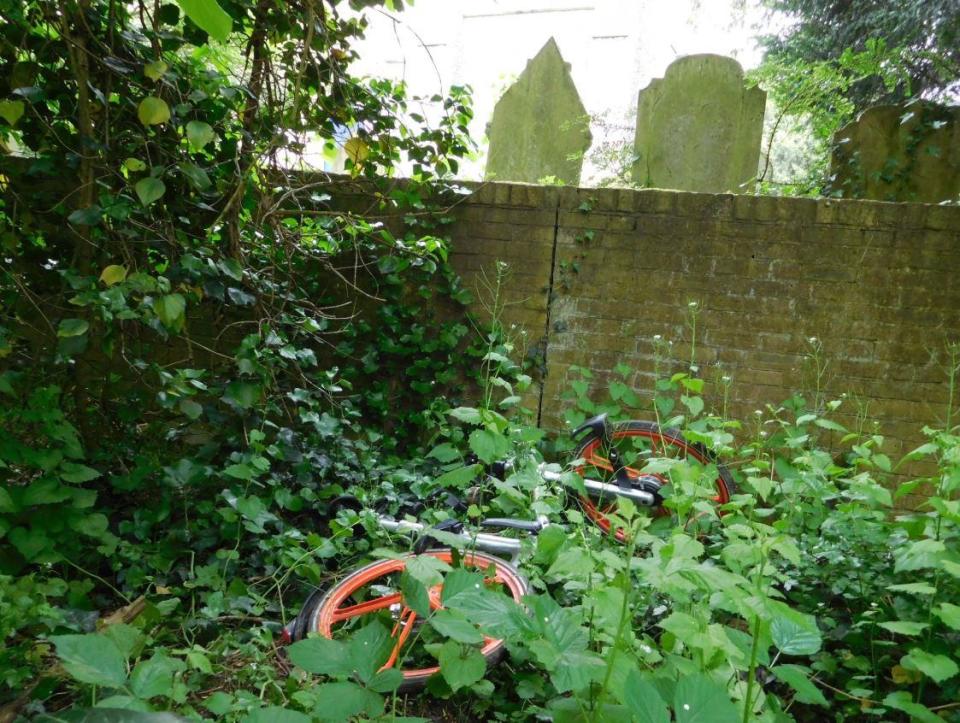Dockless bike firms reveal crackdown on vandalism and dumped bicycles in London

Smart bike hire companies have launched a crack down on vandalism and the dumping of bicycles across the capital.
Dockless bike apps such as Mobike and Ofobike have seen a surge in popularity in London over the last year.
The apps allow customers to borrow a bike and park it in a suitable location when finished. They are considerably cheaper than the Santander bikes with prices starting at around 50p.
While the bikes themselves are popular and seen as an environmentally friendly way to travel, there have been some concerns about bicycles being left or dumped around the city.

Pictures have shown the bikes left strewn along pavements, in landfill sites, bushes and even canals.

Both Ofo and Mobike say they are attempting to use technology to ensure that this is not a common occurrence and have a large team of staff patrolling the city looking for abandoned bikes.
Matthew Sparkes, from Ofobike, told the Standard: "We have a large team of marshals who patrol London, and all our other cities, with a custom smartphone app that shows where our bikes are and when they were last hired.
@ofo_bicycleUK saw your bike on a junk heap in #Clapham #Common. No way to report in app as cannot see bicycle number! Please rescue before it goes to landfill. pic.twitter.com/NemQ255ckC
— Boon Koh (@BoonLKoh) May 14, 2018
"They check on the whole fleet to make sure they're in good working order and parked responsibly."
Mr Sparkes said that Ofobikes have a GPS chip that links back to the company's servers providing an update on their condition and location.
He added: "If anyone attempts to move a bike without hiring it through our app an alarm sounds."

Mobike has similar methods to try and tackle the problem.
Steve Pyer, Mobike European Development Director, told the Standard: "In terms of vandalism, I don't want any of this to happen, there are lots of things, lots of tools we've got.
"We can put geofences in that tells operators that they can't park in those areas. So if there is an area next to a canal and if bikes are going to be thrown in there if it goes too close, we can geofence that off."

Geofencing means that a bike does not leave a person's 'account' until it has been properly parked in a correct area. Once it has been parked in a correct area, the journey logged in the app will end and the customer will be charged.
He added that the company can also put in place a points system which gives users a gentle nudge to look after the bikes and consider other people around. In an extreme case, customers can be handed a service charge.
Mr Pyer added: "I don't want to do that. I don't want to discourage people from cycling but it's a tool we have if necessary."
Hahahaaaaa somebody obviously had an accident! @MobikeUK pic.twitter.com/IFYNTaQoUv
— Olivia Guest (@o_guest) May 19, 2018
If a bike is beyond repair, Mobike ensure that it is recycled.
"We recycle as many parts as we can. Anything that we can't use, we then dispose of responsibly at a proper metal recycling place and we then get a certificate of destruction so it's all done environmentally and properly."
The dockless bikes have been incredibly popular in London and for many people are more convenient than taking the Tube.
Dockless bicycles including Mobike and Ofobike originate from China and are incredibly popular in the country.
However there have been pictures of 'bike graveyards' in large Chinese cities.
Last September Beijing banned new shared bikes in a bid to tackle the sheer number. There are said to be 2.4 million shared bicycles in Beijing.

 Yahoo News
Yahoo News 
